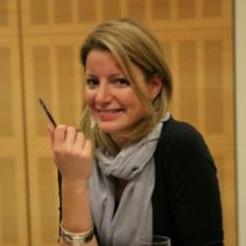The founder of AfriKids, who spoke out on BBC's Four Thought against fundraising appeals which demand pity for beneficiaries, has received an overwhelmingly positive response from the sector, and a significant boost in support, she says.
Georgie Fienberg, founder and international director of AfriKids, appeared on the radio programme on 19 December asking for the sector to 'say no to pity'.
"I want to see poverty shock advertising consigned to the history books," Fienberg said. "I think that this type of fundraising is antiquated, delivers the wrong message and is actually a net negative for society at large - both for our western societies and those in developing countries."
Fienberg also called for donors to ask charities three questions before considering them for funding: When will the projects you are fundraising for stop? How will you know when it stops that you have been successful? And how will the success/failure be communicated with the donor?
Fienberg told civilsociety.co.uk that she had expected a mixed response to her speech, which claimed that international aid advertising is "stuck in the '80s", when strong images of starving children in Africa were first circulated by the media and used on major fundraising campaigns. But having received "hundreds" of responses, only two were negative, both coming from fundraising consultants, she says.
The remainder of responses, coming mainly from medium-sized NGOs, companies and individuals, have been in support of Fienberg's message. She believes that this is because of a shift in focus from both donors and the charity sector as a whole:
“That evening when it came out what I was bombarded with was people saying ‘I can’t believe that you’re saying this, it’s needed to be said for ages, it’s really brave’. And I didn’t really get that because I didn’t think it was particularly brave, but then I started to really think through and saw that it was controversial.
"But Oxfam brought out their report on how we need to look at Africa differently. Comic Relief have their ‘See Africa Differently’ organisation and they are constantly promoting positive imagery. So there seems to be a change and I think the public are demanding it and the charities are beginning to respond.
"I think had it been a year ago we probably would have got a much more controversial response," she said.
The 'biggies' should take the lead on a campaign
The volume of responses prompted Fienberg to add a detailed automatic response to her email, detailing the charity's programme with links to a new section of the AfriKids website outlining the 'Say no to pity' objective. Asked whether this could develop into a sector-wide campaign, Fienberg said that it is something the charity is considering, but thinks that it should be led by "the biggies" such as Oxfam, which launched its latest Food for All campaign with images portraying the beauty of Africa.
Fienberg told civilsociety.co.uk that, while not an intended consequence of her message, the charity has received a significant boost in financial support and notes of interest in supporting the charity, from standing orders to companies looking to discuss partnerships.
But, she said, "people need to look beyond the fundraising impact" in their communications. "It's more important to think of the beneficiaries, the people in the photograph and the wider situation. If people are going onto the Tube everyday and seeing desperate images of children holding out rice bowls, that's what the perception of Africa will be. Whether or not they donate, that is what their perception will be. And people will stop investing in Africa, stop visiting Africa because that's the image they think it has."
Ian MacQuillin, head of communications at the Public Fundraising Regulatory Association, recognised that this would be a "trade-off":
"If Georgie's arguments are correct, the change that would allow fundraising to make this shift will have come from a wholesale repositioning of the ethos of international aid. This will create a new set of values that fundraising will be able to draw from, values that would allow for a potential trade-off of less money raised in return for increased levels of respect," he said.
While Fienberg's discussion focused predominantly on international aid, its message can be echoed throughout the sector. Natasha Hill, head of brand and strategic marketing at Cancer Research UK, told civilsociety.co.uk that: "Anyone who works in fundraising will identify with this debate." She spoke about CRUK's new brand characteristic to be optimistic, and said that AfriKids' approach to its fundraising communications, which similarly focus on the positive, sustainable results of fundraising, are "very credible".
"I don't think there's a place for guilt, I don't think guilt ever works. You have to demonstrate the truth of the issue, and sometimes that's not nice, being truthful about the cause is where we build the argument for money. You can't make everything rose-tinted. But in communicating this you need to give people dignity and respect," said Hill.
But not everybody agrees. Click here to read Lisa Clavering's blog on the issue.









